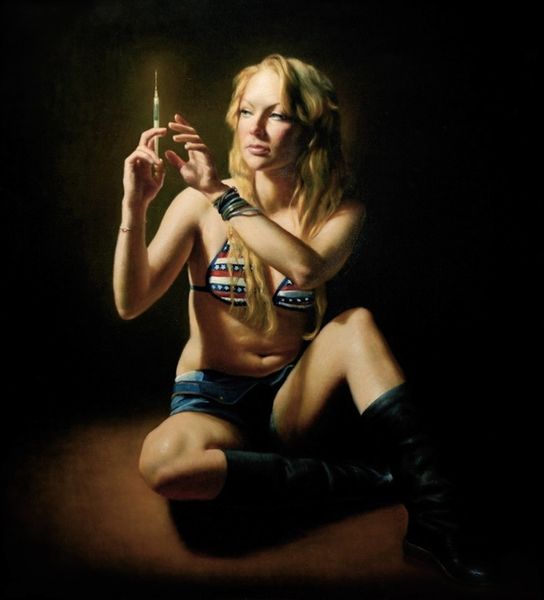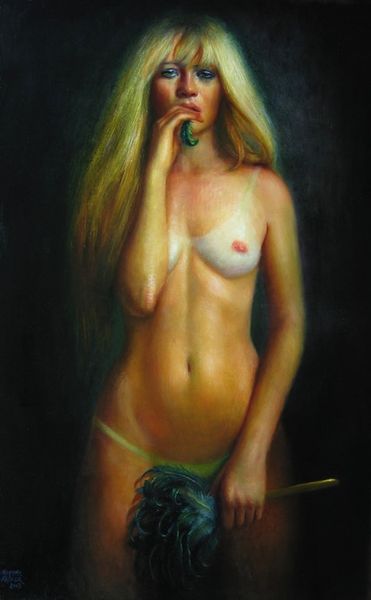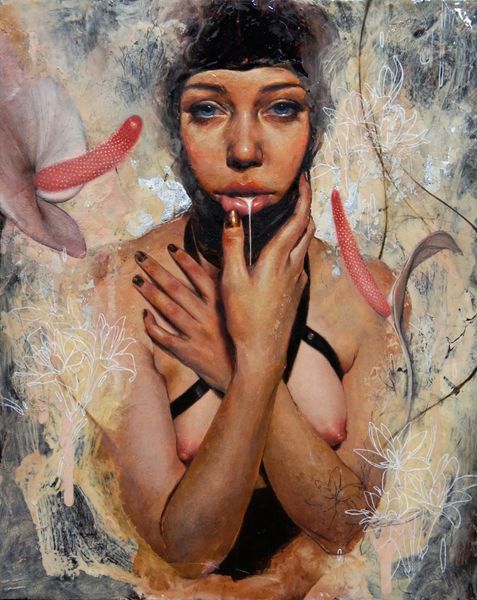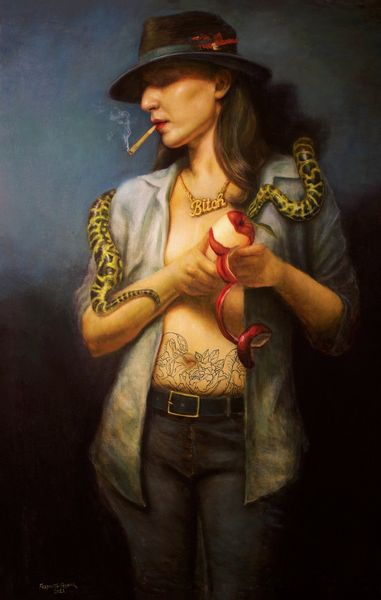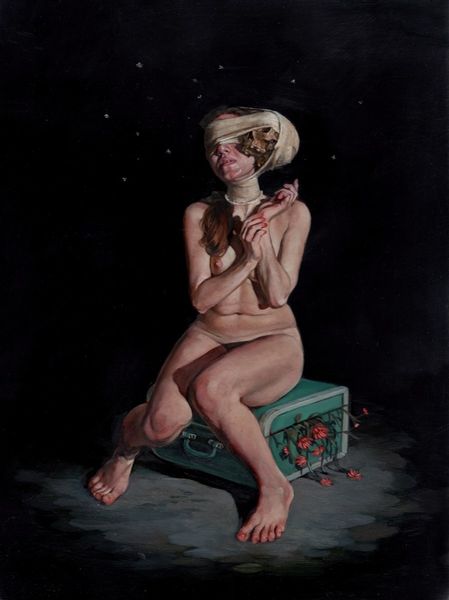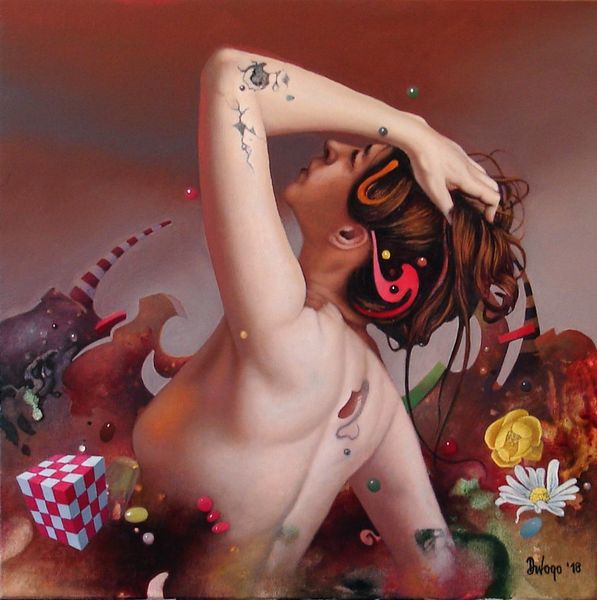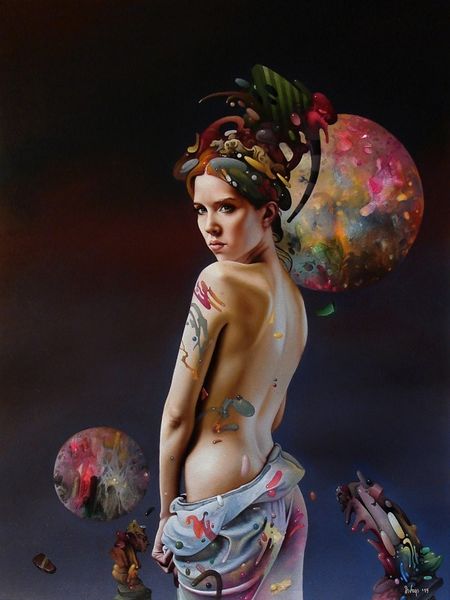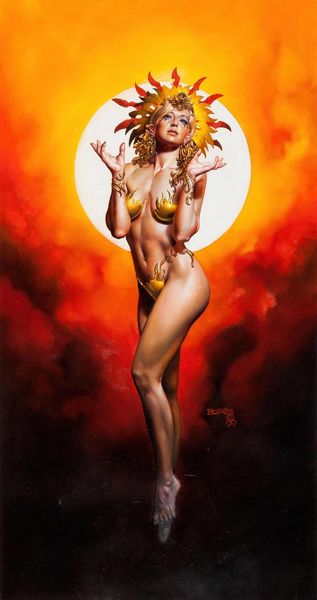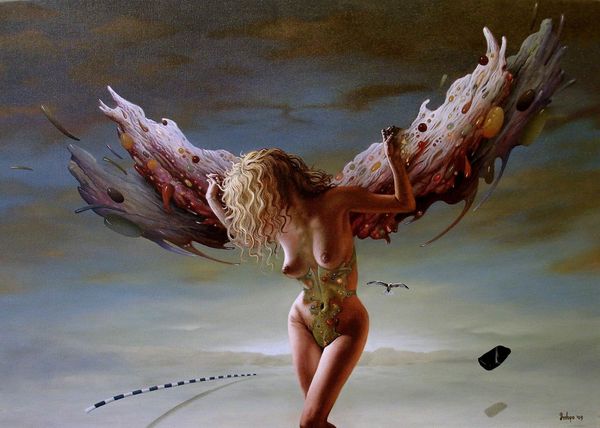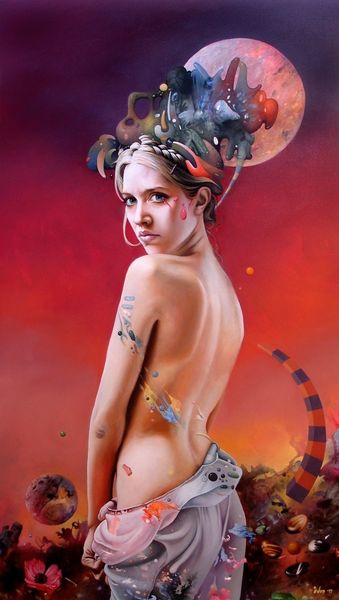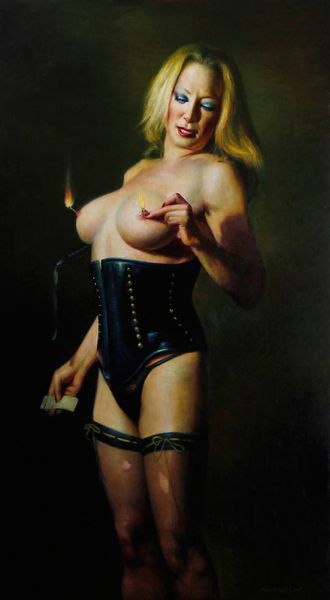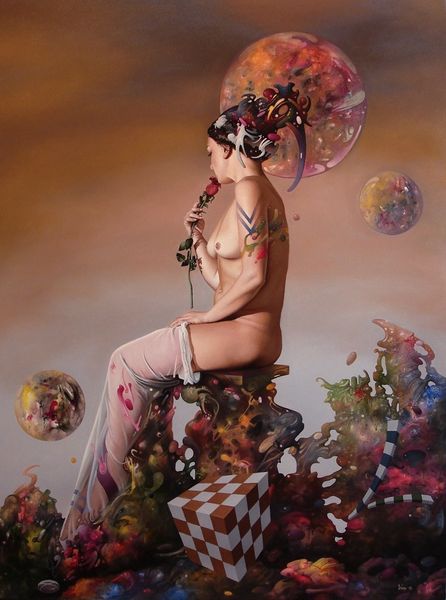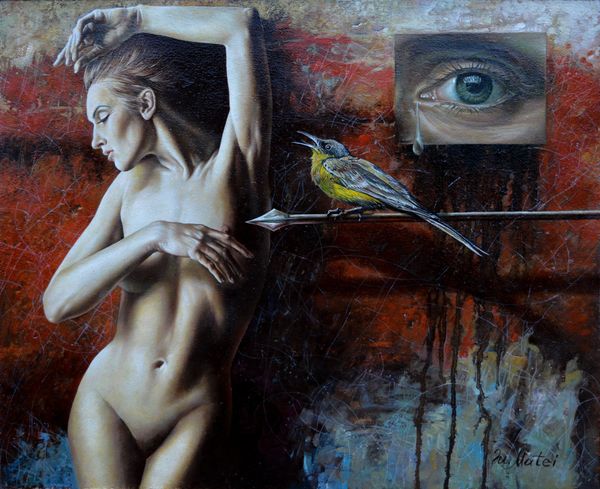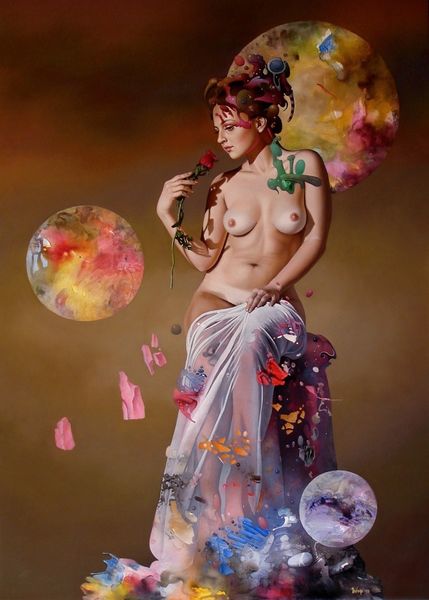
painting, oil-paint
#
figurative
#
contemporary
#
portrait
#
painting
#
oil-paint
#
figuration
#
genre-painting
#
erotic-art
#
realism
Copyright: Modern Artists: Artvee
Editor: So, here we have Rose Freymuth-Frazier’s oil painting, "One Bad Apple," created in 2015. I’m struck by the contrasting imagery: the obvious, almost cliché symbolism combined with a contemporary and sort of rebellious presentation. What’s your read on this piece? Curator: For me, it's all about the tension between the crafted image and the labor behind it. The artist uses traditional oil paint – a material historically associated with wealth and power – to depict, well, let’s say a re-appropriation of a historically gendered symbolism, placing the figure in jeans and a “Boss” necklace. Think about the choices: Why this material, this scene, and what commentary do you think she's making by putting them together? Editor: Interesting. I was so caught up in the… directness… I hadn’t really considered the implications of the oil paint itself. So, you’re saying the medium isn't neutral here? Curator: Absolutely not. Oil paint, with its history, brings baggage. Here, it’s used to depict a contemporary subject, a woman peeling an apple. We might think about commodity fetishism—taking the materials out of their original contexts of labor and consumption to point out contemporary gender and social dynamics. Where does the erotic nature of the piece come into play in this dynamic? Editor: I see your point! It feels like she's challenging those established notions. Using this loaded medium to portray… not exactly the virginal Eve. It feels very intentional, almost cheeky. Curator: Precisely. It’s about unpacking these visual and material languages we’ve inherited. It raises questions about the female gaze, doesn’t it? How she reclaims a visual language traditionally coded and intended to be consumed for an art market heavily run by patriarchal figures throughout the canon. Editor: That adds a whole new layer for me! I was focused on the surface, on that initial shock value, but the use of materials, the means of production as the actual statement – it's brilliant. Curator: And challenging, which I think is exactly what Freymuth-Frazier intends. The act of viewing itself becomes an act of questioning.
Comments
No comments
Be the first to comment and join the conversation on the ultimate creative platform.
